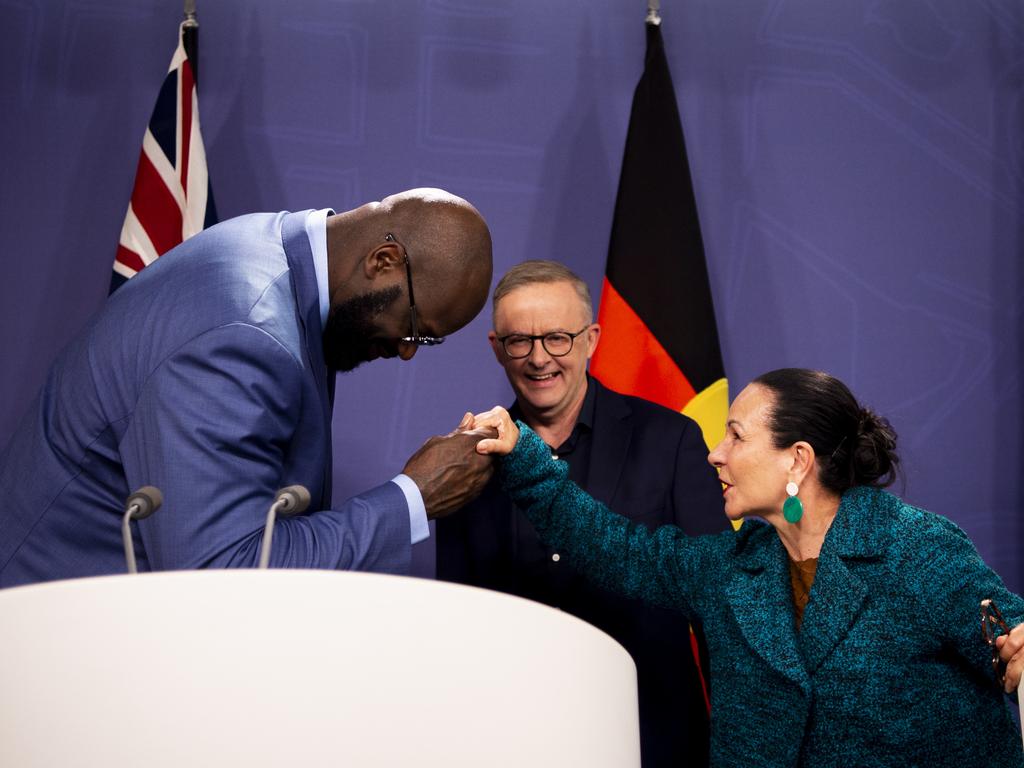Labor’s energy market meddling a backward step

Even characterised more rationally, Labor’s new energy regime represents an economic revolution as audacious as its attempt to nationalise Australia’s banking system 75 years ago.
Ben Chifley, the prime minister at the time, said: “Since private banks are conducted primarily for profit and therefore follow policies which in important respects run counter to the public interest, their business should be transferred to public ownership.”
His justification sounds eerily similar to that of current Industry Minister Ed Husic when prosecuting last week’s energy market intervention. Among the many threats the policy poses are to the successful legacy of the national competition reforms embarked on under the Hawke-Keating Labor government.
The Productivity Commission’s review into the success of these reforms found productivity improvements and price reductions had enhanced Australia’s gross domestic product by 2.5 per cent. Most relevant, the reforms drove down electricity prices by almost 20 per cent in the decade following their introduction.
The Albanese government’s new legislation also runs counter to the expert opinions expressed by the Reserve Bank of Australia governor and the Treasury secretary at Senate estimates hearings in Canberra last month.
RBA governor Philip Lowe was emphatic in his view the “substantial contribution” to addressing domestic energy market challenges was to focus on what could be done, constructively, to increase supply.

On the same day, at the same hearing, Treasury secretary Steven Kennedy was asked what type of measures were likely to have a negative effect on investment. Kennedy responded: “Any measure that was clearly not temporary” and “where the circumstances weren’t clearly explained about how the measures would work”.
In his letter to the Australian Competition & Consumer Commission on October 22, Jim Chalmers clearly stated his intention to make mandatory the voluntary code of conduct for the gas supply agreements between gas suppliers and customers. The Treasurer also sought advice for options to improve price transparency and to better define what was “reasonable” in the context of both offerings and price.
It is worth noting that ACCC chairwoman Gina Cass-Gottlieb conceded publicly in November that the regulator had been given a “relatively short period” to provide the advice sought by the Treasurer and had been required to resort to a “rapid-fire” consultation process.
While the ACCC also was tasked to provide advice “on other steps to improve the functioning” of east coast gas markets, the government conveniently chose to narrow its gaze on gas producers.
This ignored the other findings of the ACCC’s gas inquiry 2017-2025 interim report published in July. The report paints a much larger, more systemic picture of the challenges facing the east coast gas market and raises concerns for the “growing dependence” on a small number of transmission operators and their “monopoly pricing”.
More than that, the government also turned a blind eye to the interim report’s revelation that average prices paid to producers across the past 12 months rose by just 11 per cent, while those to retailers rose 95 per cent.
A genuinely comprehensive plan to support gas customers would surely have included the details of what new steps the Labor government has taken since its election in May to changing government processes for releasing acreage, monitoring and enforcing compliance with work programs, and reducing the infrastructure, regulatory and capital barriers faced by producers.
All were matters canvassed by the ACCC in January and identified as needing attention if competition and supply were to be maintained.
The Business Council of Australia, among many others, has correctly warned against such “dramatic market intervention” and the adverse “long-term consequences” of higher prices for households and businesses.
Now left in an uncertain position, it seems inevitable that Australia’s big end of town will spend the summer break with unease.
Just six months into office, the Albanese government has ignored the perspectives of Australia’s prominent policymakers and cherrypicked advice to mount a successful coup against an industry providing 165,000 jobs, that invested close to half a trillion dollars during the past decade and is projected to contribute $58bn in tax revenues.
Surely alarm bells must now be starting to ring in the boardrooms of every other Australian industry.
Senator Dean Smith is opposition assistant spokesman for competition, charities and treasury.




The events of last week have been described variously as “draconian, reckless vandalism”, “Soviet-style” and the “single worst piece of energy policy” seen anywhere in the world.